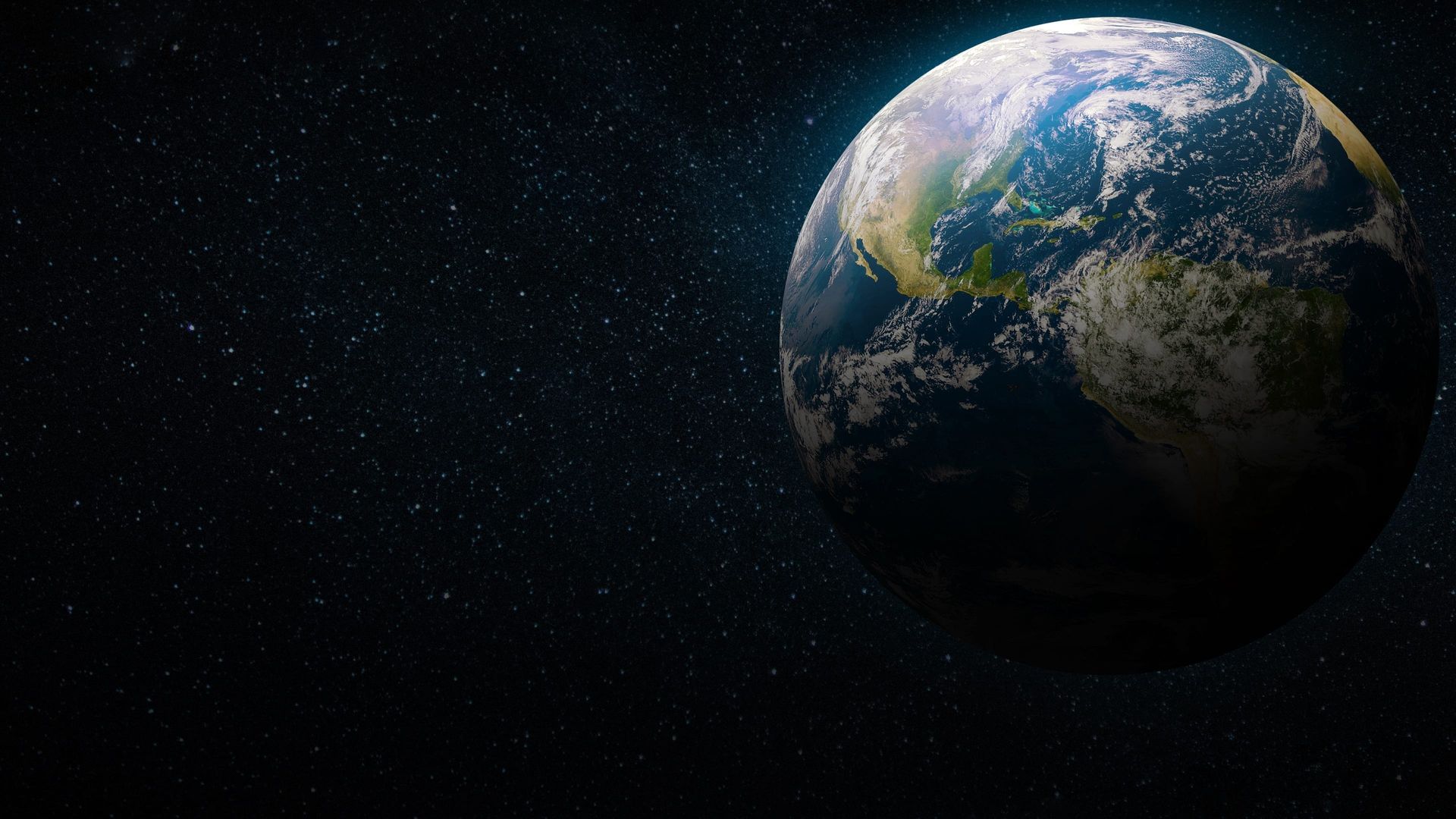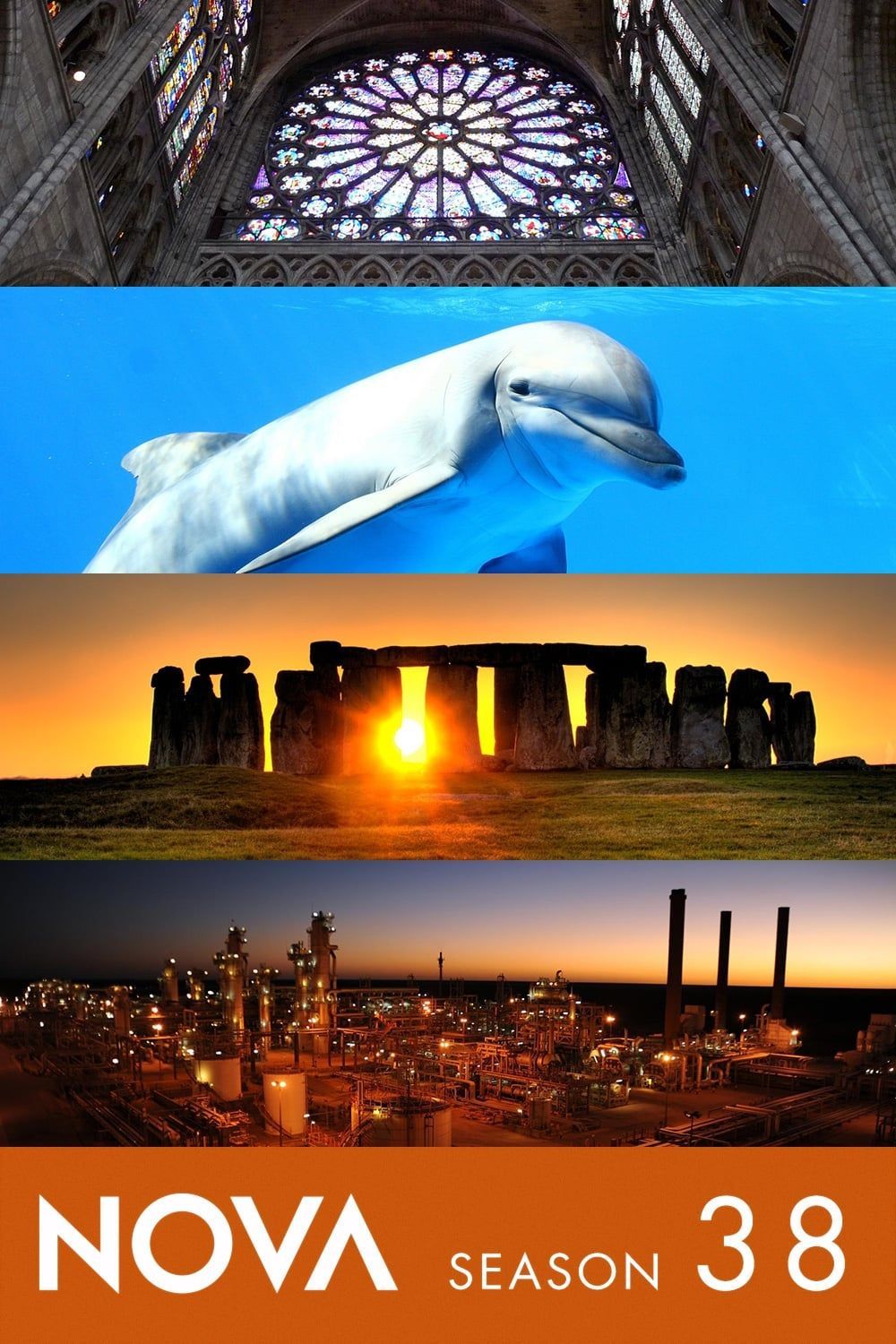

NOVA
Season 38
TV-PG
A weekly documentary series, each episode providing an in-depth look at a different subject of scientific research. Subjects examined by this show have included the cutting edge of theoretical physics, a return to the Chernobyl nuclear reactor, the long-term effects of Amazon deforestation, and the development of life-saving medical techniques.
Where to Watch Season 38
18 Episodes
- Dogs Decoded
 E4
E4Dogs Decoded"Dogs Decoded" reveals the science behind the remarkable bond between humans and their dogs and investigates new discoveries in genetics that are illuminating the origin of dogs—with surprising implications for the evolution of human culture. Other research is proving what dog lovers have suspected all along: Dogs have an uncanny ability to read and respond to human emotions. Humans, in turn, respond to dogs with the same hormone responsible for bonding mothers to their babies. How did this incredible relationship between humans and dogs come to be? And how can dogs, so closely related to fearsome wild wolves, behave so differently? - Secrets of Stonehenge
 E5
E5Secrets of StonehengeA look at new attempts by archaeologists to understand Stonehenge by excavating in the area around the site. Included is an explanation of previous excavations at the site as well as how the site compares to other stone and timber circles around the British Isles. Also, experiments are conducted to show how various components may have been brought together. - Quest for Solomon's Mines
 E6
E6Quest for Solomon's MinesCountless treasure-seekers have set off in search of King Solomon's mines, trekking through burning deserts and scaling the forbidding mountains of Africa and the Levant, inspired by the Bible's account of splendid temples and palaces adorned in glittering gold and copper. Yet to date, the evidence that has claimed to support the existence of Solomon and other early kings in the Bible has been highly controversial. In fact, so little physical evidence of the kings who ruled Israel and Edom has been found that many contend that they are no more real than King Arthur. In the summer of 2010, NOVA and National Geographic embarked on two cutting-edge field investigations that illuminate the legend of Solomon and reveal the source of the great wealth that powered the first mighty biblical kingdoms. These groundbreaking expeditions expose important new clues buried in the pockmarked desert of Jordan, including ancient remnants of an industrial-scale copper mine and a 3,000-year-old message with the words "slave," "king," and "judge." - Making Stuff: Stronger
 E9
E9Making Stuff: StrongerWhat is the strongest material in the world? Is it steel, Kevlar, carbon nanotubes, or something entirely new? NOVA kicks off the four-part series "Making Stuff" with a quest for the world's strongest substances. Host David Pogue takes a look at what defines strength, examining everything from steel cables to mollusks to a toucan's beak. Pogue travels from the deck of a U.S. naval aircraft carrier to a demolition derby to the country's top research labs to check in with experts who are re-engineering what nature has given us to create the next generation of strong stuff. - Making Stuff: Smaller
 E10
E10Making Stuff: SmallerHow small can we go? Could we one day have robots taking "fantastic voyages" in our bodies to kill rogue cells? The triumphs of tiny are seen all around us in the Information Age: transistors, microchips, laptops, cell phones. Now, David Pogue takes NOVA viewers to an even smaller world in "Making Stuff: Smaller," examining the latest in high-powered nano-circuits and micro-robots that may one day hold the key to saving lives. - Making Stuff: Cleaner
 E11
E11Making Stuff: CleanerThis program looks at cleaner ways to generate power principally in our cars and electrical power plants. It reviews alternatives for all the steps in the fuel generation, storage and distribution processes with a particular emphasis on how unwanted waste products can play a significant role. - Making Stuff: Smarter
 E12
E12Making Stuff: Smarter"Making Stuff: Smarter" looks at materials that respond to their environments and even learn, such as an airplane wing that changes shape as it flies. Scientists are turning to nature in developing such "smart" stuff. Sharkskin, for instance, has inspired a substance that, when sprayed in hospitals, could eliminate antibiotic-resistant bacteria. David Pogue visits a scientist who has even created a material that can render objects invisible. "Smarter" concludes with a vision of the ultimate in "life-like" stuff: programmable matter that could create a duplicate of a human being. - Crash of Flight 447
 E14
E14Crash of Flight 447On June 1, 2009, Flight AF447, an Air France Airbus A330 flying from Rio de Janeiro to Paris, disappeared over the Atlantic Ocean with the loss of all 228 lives. How could a state-of-the-art airliner with elaborate electronic safety and navigation features and a faultless safety record simply fall out of the sky? NOVA assembles a team of seasoned pilots, engineers, and safety experts to examine the evidence that emerged in the weeks following this horrific disaster. What led Flight 447's crew to fly straight into a towering thunderstorm? With expert testimony, satellite weather images, and messages transmitted by the doomed plane's computer system, NOVA pieces together the fatal chain of events. - Venom: Nature's Killer
 E15
E15Venom: Nature's KillerNova and National Geographic follow researchers collecting venom from the world's most dangerous snakes, spiders, lizards and other creatures. The program explains why the researchers do it and what is known about how venom works and why some animals are especially dangerous. - Power Surge
 E17
E17Power SurgeCan emerging technology defeat global warming? The United States has invested tens of billions of dollars in clean energy projects as our leaders try to save our crumbling economy and our poisoned planet in one bold, green stroke. Are we finally on the brink of a green-energy "power surge," or is it all a case of too little, too late? From solar panel factories in China to a carbon capture-and-storage facility in the Sahara desert to massive wind and solar installations in the United States, NOVA travels the globe to reveal the surprising technologies that just might turn back the clock on climate change. NOVA will focus on the latest and greatest innovations, including everything from artificial trees to green reboots of familiar technologies like coal and nuclear energy. Can our technology, which helped create this problem, now solve it? - How Smart Are Animals?
 E18
E18How Smart Are Animals?Would you care to match wits with a dog, an octopus, a dolphin, or a parrot? You may think twice after watching the segments in this NOVA scienceNOW episode. While we may not be ready to send pets to Harvard, the remarkable footage and findings presented here demonstrate that many animal species are much smarter than we assume and in ways we had never imagined.








